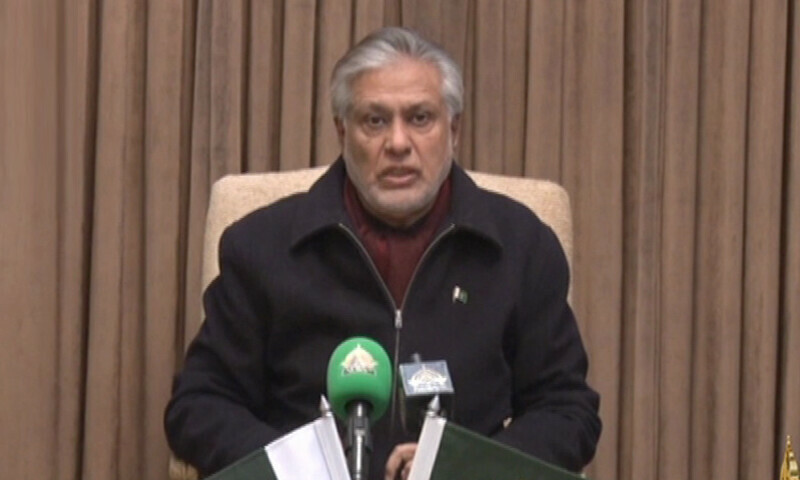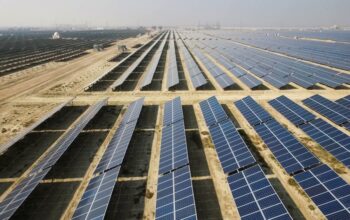By Naveed Naqvi
ISLAMABAD: The government on Sunday raised prices of petrol and diesel by Rs35 per liter, just days after the rupee value plummeted to its lowest against the US dollar when price caps were removed.
Finance Minister Ishaq Dar made the announcement in a televised address on Sunday morning as prices have been adjusted on a fortnightly basis from the first to sixteenth of every month.
But the hike two days in advance of the scheduled revision shows the government’s despair for the resumption of the IMF program to keep the frail economy on track. An International Monetary Fund mission is due later this month to discuss the stalled ninth review of the country’s bailout programme.
The 9th review of $7 billion IMF loan program has been pending since September last year, primarily because of the tough preconditions set by the Fund. One of the prerequisites is to collect a petroleum development levy (PDL) to the tune of Rs855 billion by June 2023.
Minister Dar said the government had to increase the prices of petroleum products, considering the recent devaluation of Pakistani currency and up to 11 percent in global fuel prices.
“A decision has been made that petrol and diesel prices will be increased by Rs35 each, and kerosene oil and light diesel oil will be increased by Rs18 each.”
Following the revision of prices, petrol will now be available at Rs249.8 per liter, high-speed diesel at Rs262.8, kerosene oil at Rs189.83 and light diesel oil at Rs187 per liter.
“These prices will be applicable from 11am on Sunday, 29th January,” Dar said.
Dar hoped that the announcement would dispel speculation on social media of a higher price hike or that petrol supplies would run dry.
“This rise is being done immediately on the recommendation of the oil and gas regulatory authority who said there were reports of artificial shortages and hoarding of fuel in anticipation of price rises – hence this price rise is being done immediately to combat this.”
Analysts said Prime Minister Shehbaz Sharif’s government will have to take multiple other steps, including an increase in energy prices and tax revenues , to meet the IMF conditions for the revival of bailout programme even though it will have to pay a political cost for the decision just months away from national elections.
So far, the the government has dodged the IMF by not accepting a key bailout condition of raising natural gas prices. There seems to be some movement recently. The Oil and Gas Regulatory Authority has recommended the government increase gas prices by about 75 percent this month, while separately PM Sharif has set up a committee to find ways to reduce debt of about 1.6 trillion rupees in the gas sector.
Copyright © 2021 Independent Pakistan | All rights reserved




